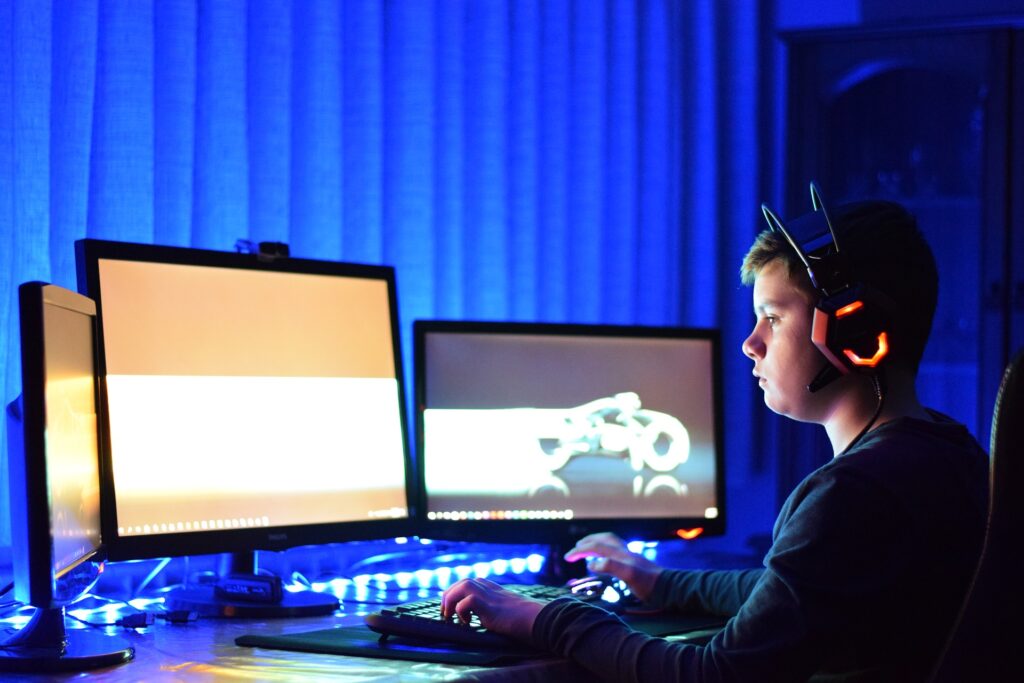Online gaming disorder is a serious Mental Health situation. Often parents are seen worrying about their children who cut off themselves from daily life, school, studies, eating food, playing, socializing with others.
Gaming disorder can be called a disorder when a child is seen playing video games instead of participating in age-appropriate activities such as attending school, sports, and other extra-curricular activities. It has been observed that in extreme case children play up to 8 hours a day leaving all other activities a child is supposed to do in a day.

Parents need to understand it’s their fault and not the child’s fault for this addiction. Unsupervised children devoid of parental attention tend to be addicted to online activities.
Some parents succeed and some fail; parents experiment with “trust the child” philosophy, others have flat out given up on breaking this addiction. It is practically impossible to monitor the children around the clock nor can parents disconnect them from electronics in today’s world. What is needed is discipline. Here is some tips for game addiction

Here are the few tips for parents on what can be done if their child is addicted to online gaming.
- Talk to the child: Explain to the child how game is affecting his/her life. How studies are affecting or may affect if the situation isn’t curbed now. Give some realistic examples with their results by showing concern about them. Most importantly don’t be abusive and aggressive. Start slowly and be patient.
- Engage their day: Very often it is seen that both parents are working and the child is all alone at home and hence engages in video games. Engage the child with any other activities he/she enjoys like dancing, any sport, singing class (anything of the child choice, kindly do not force)
- Devote time to children: Working and non-working parents both have to spend quality time with children. Spending time creates a bond between you and your child, it also diverts the attention away from gaming.
- Set up a specific time for gaming: Refraining the child from gaming completely would create deadly results, hence set up a time in a day and stick to it. Let the child know that he/she would only be able to play for an hour.
- Be good role models for kids: Children imitate elders/parents. So if parents themselves are seen glued to laptops and mobiles, parents lose the right to say or scold children.
- Set up a time table: Parents along with the child should set up a time table. Right from waking up, school, studies-homework, food, playing, helping in household activities, gaming, and sleeping. All should be time-framed. Reward the child for adhering to the timetable. Slowly condition the child for good habits.
- Monitor the behavior: Sometimes the impact of video games can result in an aggressive child, watch out their behavior and nicely explain the difference the real world and online gaming. Gaming desensitizes an individual from gore and death. An aggressive child is a product of dysfunctional parenting.
- Real vs Unreal: Explain to the child that what he/she enjoys or whatever feels is virtual and not real. Instead, make more friends, play outside. Frequently indulge in outdoor activities to create a synergy with nature.
- Play video games with your child: It is okay to play online games with your children. “It gives them a sense of understanding that my parent isn’t so bad and just keeps yelling at me but shows some interest in the game I play”. It gives an understanding to the parent too of what and why the child plays and is addictive to?
- Physical exercise: Engage the child in any kind of physical exercise, yoga/karate/martial art, any sport. This will help the child to exert and sleep early.
- Express Gratitude: Encourage your child to express gratitude for five positive incidents during the day. It could be as simple as a meal of their choice or the fresh air that they breathe.
Video game isn’t completely negative, it helps a child in developing decision-making capabilities and hand-eye coordination. It only needs to be done in moderation and not at the expense of other social interactions.
To learn more about Dr. Prerna Kohli click here
All images courtesy Pixabay

